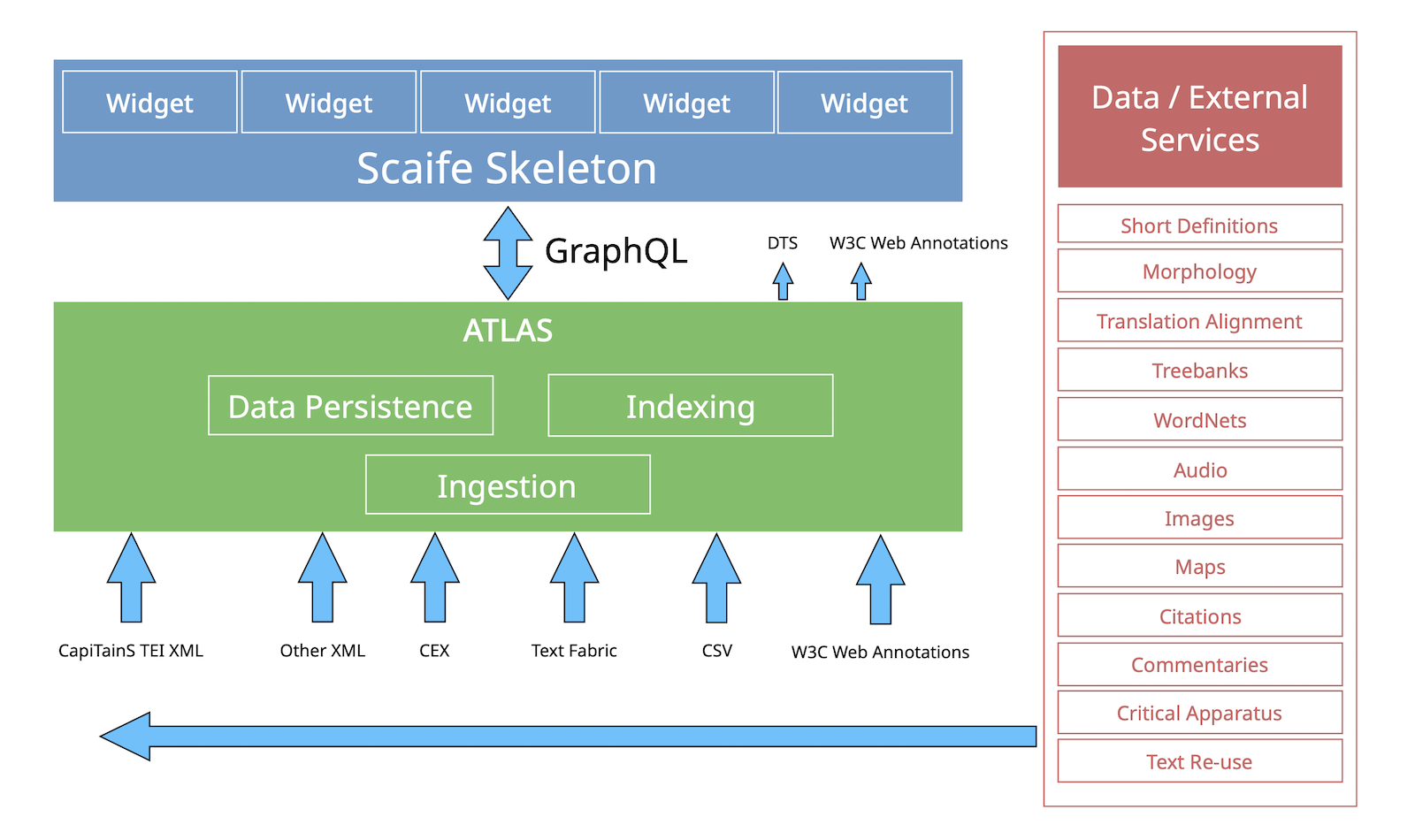The Scaife Viewer Project
The Scaife Viewer was originally designed as the first phase of work towards the next generation of the Perseus Digital Library. This work can be seen at
scaife.perseus.org
It is now growing into a highly extensible platform usable by a variety of different projects, with a growing library of widgets that integrate texts with various types of annotation and external APIs.
Our goal is to help Digital Humanities projects to focus less on building their own reading environments and more on the scholarship unique to their project. We hope soon to be able to showcase some of the projects being built on Scaife.
The project is part of the Open Greek and Latin Project, an international collaborative consortium of librarians and researchers, that includes the Center for Hellenic Studies of Harvard, the Harvard Library, the Library of the University of Virginia, Mount Allison University, the Perseus Digital Library at Tufts, and the Open Philology Project at the University of Leipzig.
The Alexander von Humboldt Chair of Digital Humanities at Leipzig funded the initial development but ongoing work is now funded by a variety of organisations both generally and in the context of specific Digital Humanities projects. Such organisations include the Mellon Foundation, Harvard University, Brill, and the Qatar National Library.
The Scaife Viewer is named for Ross Scaife, a pioneer in digital classics who lived the virtues of collaboration and who set an early example in establishing open access and openly licensed data as the standards upon which Digital Classics now depends. The initial release of the Scaife Viewer was on March 15, 2018, the tenth anniversary of his premature passing on March 15, 2008.
Scaife Development
While Eldarion continues to lead development, the goal is to create an ecosystem which members of the community can extend. The code is open source under an MIT license. The technologies used include Vue.js, GraphQL, Django, and Elastic Search.

The best way to get involved is to join Slack and get familiar with the key repositories and Trello boards.
Slack Workspace
You can join via slack.scaife-viewer.org.
Key Repositories
As well as making incremental changes to scaife.perseus.org, we're also working on a new architecture with a separate server (called ATLAS, for Aligned Text and Linguistic Annotation Server) and a frontend consisting of a Skeleton and various pluggable Widgets. We are proving this architecture out with a couple of prototypes including "Explore Homer" which brings together various levels of analysis of Homer, and "SV Mini" which shows a variety of texts with some analysis but not as deep as Explore Homer nor as broad as the entire Perseus Digital Library.
Generic Front-end Code
- scaife-skeleton — front-end layout library for Scaife readers
- scaife-widgets — front-end component library for the Scaife Viewer ecosystem
Explore Homer Prototype
- explorehomer — new frontend for Explore Homer prototype
- explorehomer-atlas — new backend for Explore Homer prototype
SV Mini Prototype
- sv-mini — new frontend for SV Mini prototype
- sv-mini-atlas — new backend for SV Mini prototype
Existing Site
- scaife-viewer — main code currently running scaife.perseus.org
Demo Sites
Trello Boards
We currently use three Trello boards to coordinate development of the Scaife Viewer:
- Scaife Roadmap — used to track high-level functionality across the Scaife Viewer ecosystem
- Scaife Planning — used to groom concrete epics that implement new features
- Scaife Development — used to track implementation of epics via user stories
Further details about how we use Trello can be found in the Trello workflow wiki page.